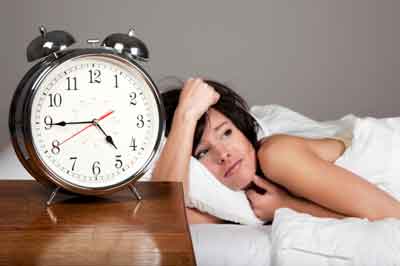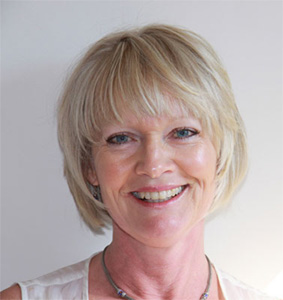Sleepless Beauty? Could your hormones be to blame?

Sleepless Beauty? Could your hormones be to blame?
Are you unable to sleep? Do you have poor sleeping patterns? If so, you may have a hormone imbalance.
Tell me about hormones defines hormones as "chemicals that carry messages from organs of the body to the cells and work to keep the body's natural balance. About 50 types of hormones are at work throughout our lives and influence our development, behaviour and wellness, including
Some hormone levels will change over the course of a day whilst other gradually change over a lifetime. A hormone imbalance means you have too little or too much of one particular hormone.
To find out more about your hormones and the vital role they play in your body as well as to find a professional complementary healthcare practitioner visit www.tellmeabouthormones.com.au. The website contains credible, easy to read information to help educate you about hormones, the role they play in our health and the importance of consulting a professional complementary healthcare practitioner who can assess your hormone health and advise of a suitable complementary treatment plan.

Interview with Heyltje Vaneveld
Heyltje Vaneveld, Clinical Director and Integrative Naturopathic Practitioner, Salus - Integrative Medicine Specialists: 1002 High Street Armadale, Victoriawww.salusmedicine.com.au or Phone: 03 9500 8870
What interruption do hormones make in the ability to sleep?
Heyltje Vaneveld: When considering sleep, the analysis involves the following three components; the ability to initiate, maintain and wake from sleep.
Sleep is much more than 'turning off' for the day. Sleep is a relatively new research topic, with findings that suggest that sleep is anything but a passive state; it is in contrast a very active state. A significant function of sleep itself, is the repair, maintenance, growth and healing of the body. The nightshift hours appear to be very important to overall health, and may in fact be more so than the dayshift.
Sleep, both its quantity and quality, is controlled by a team consisting of hormones, neurotransmitters, (active substances in the brain), and very specific vitamins and minerals (nutrients). One of the brain's neurotransmitters, Adenosine, plus the body's very own sleep hormone, Melatonin, co-ordinate the shift from wakefulness to sleepiness, thus exerting control over the body's circadian rhythm.
How exactly can a hormone imbalance disturb our sleeping patterns?
Heyltje Vaneveld: The regulation of our sleep-wake homeostasis can be disrupted by two of the body's hormonal groups, firstly the pair responsible for controlling our response to daytime activities; the adrenal and the thyroid systems, and secondly the sex hormones, oestrogen and testosterone.
The thyroid hormone also controls the nervous system activity level, therefore sleep becomes more difficult if the nervous system or thyroid hormone is overactive. On the other hand if the nervous system and thyroid function becomes under-active a person may wish to sleep more and actually oversleep.
The thyroid gland also regulates the core body temperature and successful sleep promotion needs the body to cool down to lower the core temperature, which an overactive thyroid would be unable to do.Cortisol, the adrenal gland hormone, is often referred to as the stress hormone and has a major impact on the sleep-wake cycle. Cortisol has major roles in the body, it is the body's major anti-inflammatory hormone, utilised to defend the body when injured.
Cortisol is also released when the body perceives there is a threat to its survival, be that real or imagined. When the body prepares its fight/flight response it also releases two other hormones, adrenalin and nor-adrenalin from the adrenal glands. The stress response is paramount to our survival; the problem is when it is over-used in response to daily living and also when the body can not switch it off. This hyper aroused state disrupts the body's sleep cycle and prevents the body from the rest and recovery it also needs for survival and longevity.
Melatonin, our sleep hormone produced by the pineal gland and stimulated by darkness, promotes deep and restorative sleep.
Serotonin a neurotransmitter with calming properties also supports sleep and supports the production of Melatonin, in combination with certain vitamins and minerals.
How can we tell if hormones are contributing to a lack of sleep?
Heyltje Vaneveld: Sleep issues, particularly if sleep difficulties have become chronic in nature, require a comprehensive assessment that includes testing for physical conditions as well as nervous system or psychological issues.
Hormonal levels can be tested using blood, salvia or urine. Neuro-endocrine metabolite screening is performed via a urine test and indicates which brain neurotransmitters involved in sleep, are elevated or low, providing clear treatment options.
Blood and salvia are both very good testing mediums for the analysis of the sex and adrenal hormones, both hormone types intimately involved in the sleep-wake cycle.
An experienced healthcare practitioner can also assess a person's current and past medical history and determine the likelihood of a hormonal imbalance which might adversely impact on sleep. Certain tests will add value to the diagnosis and provide treatment options.
Individual biochemistry testing also provides information about a person's susceptibility to stress, disease conditions and hormonal patterns. Biochemical pathways involved in the stress response are routinely surveyed through a range of specific tests and form the basis of integrative medicine practices. Understanding one's own susceptibility or resilience to stress and illness is empowering, and supports lifestyle changes.
Does lack of sleep come from some of the other hormone linked conditions such as; depression?
Heyltje Vaneveld: Insomnia, disrupted sleep and over sleeping are all conditions that predispose people to chronic states of ill health, which include such conditions as heart disease, obesity, diabetes, accelerated ageing, mood disorders and cancer. These chronic health conditions can also disrupt and change sleeping patterns by the very nature of how chronic diseases disrupt homeostasis.
Menopause and andropause commonly and inevitably cause a decline in the production of the sex hormones, oestrogen and testosterone. Oestrogen is a sleep maintaining hormone as is testosterone which also maintains deep, slow wave sleep. Testosterone deficiency in both men and women has been associated with sleep apnoea and snoring, both which are extremely disrupting to sleep, and contribute to very specific chronic disease patterns.
As the sex hormones decline the adrenal gland increases the production of its hormone DHEA to compensate for declining sex hormone levels. As DHEA is a precursor to virtually every hormone the body makes its role is increased in mid-life and beyond.
Does a lack of sleep affect hormones?
Heyltje Vaneveld: If sleep deprivation occurs over a prolonged period then indeed most of the body's hormones will be affected. Initially the adrenal gland hormones will be over produced in response to a sense of threat to the body's homeostasis.
When cortisol levels are elevated, compensatory activity occurs in other hormonal centres. Of particular importance is the disruption of blood sugar levels under the influence of elevated stress hormones.
Insulin, a pancreas hormone, regulates blood sugar levels. There is a lot of interest in Insulin because research suggests that constantly elevated levels of Insulin is harmful to our health, and has been linked to the following chronic health conditions: obesity, pre-diabetes, diabetes, heart disease, poly-cystic ovarian syndrome, depression and infertility. Could an elevated level of Insulin cause so much harm? Research strongly suggests that it does, in association with raised levels of stress hormones. High circulating levels of Insulin promotes fat storage, particularly around the abdominal area; therefore abdominal adiposity is associated with stress.
What tips can you provide if someone thinks that their hormones may be affecting their sleeping patterns?
Heyltje Vaneveld: Throughout the discussion a number of hormones, neurotransmitters and nutrients have been implicated as to their role in the sleep-wake cycle. If sleep issues persist it is recommended to consult with a health practitioner specialising in hormonal health and undertake some preliminary testing.
Scrutinising lifestyle practices and improving in areas known to compromise sleep and energy states must be attended to. To not do so will jeopardise any treatment plan.
Sleep hygiene is the term used to describe lifestyle behaviours associated with the promotion of a good night's sleep. They include the following:
Interview by Brooke Hunter
MORE
- Menstrual Period Management
- The Secret to Weight Loss
- Feeling The Pain: How To Tackle Period Pain
- Period Pain and How to Survive It
- Gender Specific Medicine
- Helping Women To Start Those 'Difficult'...
- Michelle Boyd Ellura Interview
- Menopause Does Not Protect Women From Cervical...
- Five Ways to Balance Hormones
- Do You Really Know What Is Going On Down There?
- Do You Know Your Breasts?
- Dr. Stan Goldstein Sexual Health Choices Interview
- Breast Health Decision Question and Answers
- Breast Cancer Treatment Impacts Patients' Sex...
- Bladder Weakness More Common Than Hay Fever
- Belinda Reynolds How To Manage UTI's Naturally...
- Treat Bones Like Breasts
- Mammogram Technology
- Soodox for Women
- Chlamydia Most Commonly Reported STI In Australia
- Time For Reflection Is Great For Mental Health



